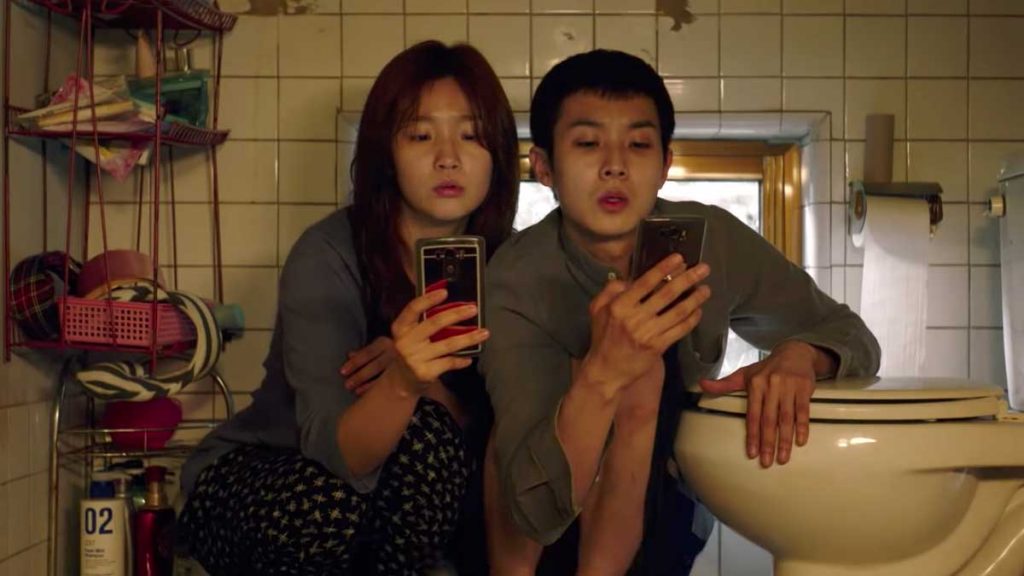(THIS ARTICLE IS MACHINE TRANSLATED by Google from Norwegian)
The class differences in the world have not exactly decreased in recent years, which is also reflected in both feature films and TV series. Here at home has the NRK series Exit by Øystein Karlsen great success with his portrayal of young, powerful and totally unscrupulous financial acrobats, which also makes a point out of their (mis-) use of Asian aupair, while British Ken Loach participated in the main competition of this year Cannes festival with his new movie Sorry We Missed You, which premieres in Norwegian cinemas now in November. Here, the old social-realist traveller tells about the relatively new work situation where one is hired as a "consultant" instead of as a payee, in this case as a package messenger responsible for his own van and all other forms of expenses.
Perhaps not quite unlike the terms Foodora's bid recently went against, without me claiming that Foodora has been just as exploitative as the fictional (but not necessarily untrustworthy) company in Loach's film.
postapocalyptic
This year's winner of the Gold Palm in Cannes, however, was South Korean filmmaker Joon-ho Bong's Parasite, which is the opening film at Film from the South Festival in Oslo this month. (Otherwise, the film will receive an ordinary movie premiere at the end of January.) Joon-ho Bong has commented on, among other things The Host (2006), which is a very entertaining monster movie with far more charm and playfulness than can be found in the comparable latest Godzilla films.
His really big breakthrough came with international production Snowpiercer from 2013, a post-apocalyptic science-fiction fable with a clear climate message and clear inspiration from filmmaker Terry Gilliam, and names like Chris Evans, Tilda Swinton, John Hurt and Ed Harris on the cast.
The film's action took place on a long, constantly moving train, where the presumably the only surviving humans stayed after Earth became an uninhabitable isthmus – organized in an extreme, new class divide.
Whitish lies
The class perspective is also strongly present in Joon-ho Bong's latest film. Parasite is about a disadvantaged South Korean family consisting of mother, father and two grown children. In their cramped basement apartment, they try to make ends meet by folding pizza boxes for a takeaway chain. When the son is tipped off about a rich family that needs a paid study counselor for their teenage daughter, he gets the job by, among other things, falsifying a certificate of the education he has planer about taking.
Soon he sees opportunities to get his other family members hired to perform various services for the mediated household, through what eventually takes on more role play than whitish lies.
Parasite is a movie that takes a lot of unexpected turns – especially when you think you have
though it carries.
Something more should not be said about the action, then Parasite is a movie that takes a lot of unexpected turns – especially when you think you have realized where it is going. Even though I knew very little about the content of the film when I saw it at the Bergen International Film Festival recently, I thanked myself afterwards for reading my disgraceful little at a Gold Palm winner from Cannes. But you can certainly allow yourself to enter the cinema with high expectations – about a movie that, strictly speaking, is not like many others.
Joon-ho Bong also addressed current political issues in his previous film Okja (2017), which was about a multinational company developing "natural" piglets for the meat industry. This one was also selected for the main competition in Cannes, and is now available on Netflix here at home.
Social satire
Parasite contains some fable-like elements of the Joon-ho Bong type pure in Snowpiercer, but is far closer to today's reality. Like Ken Loachs Sorry We Missed You the film can be seen as a critical commentary on modern, class-divided economic reality. But where Loach does it in his usual, social-realist way – which, to be sure, is nothing wrong with, except that Sorry We Missed You sometimes becomes obscure in its conveyance of the message – can Parasite best described as a social satire. Well to note with elements of both comedy, thriller and drama, in a surprisingly well-functioning genre mix. The film's portrayal of a modern subclass also has clearer parallels to the aupair in Exit (and in the many mediated homes around the world) than to the hired "consultants" in Loach's film.

The director and his photographer Kyung-pyo Hong emphasize the differences between the rich family's luxury villa and the stately basement apartment through their different visual approach to the two recording locations. And gradually, a near biblical rain falls, both as a kind of flood and as a reminder that nature is not particularly pleased with the state of things. But it is regardless of the people who are given the responsibility for the whole thing, in a system where the differences between them seem to have been marked by naturalness.
Parasite is the opening film of the year Movies from the South festival, which is arranged 7. – 17. November in Oslo 2019. The film will have its regular Norwegian cinema premiere on 31 January 2020.
Movies from the South show Parasite and Joon-ho Bong movies in this year's digital festival.


